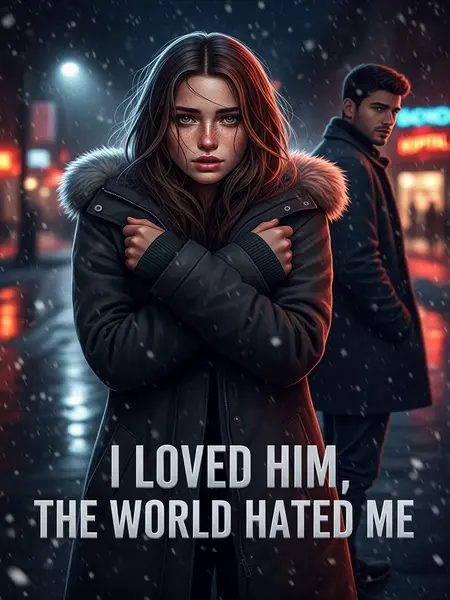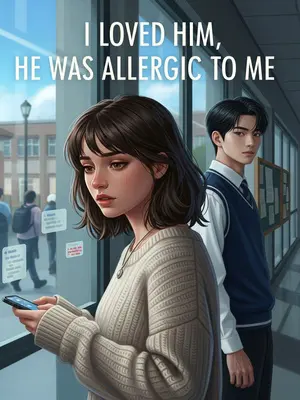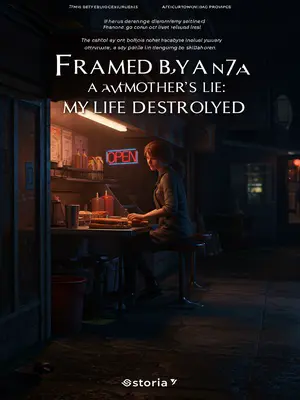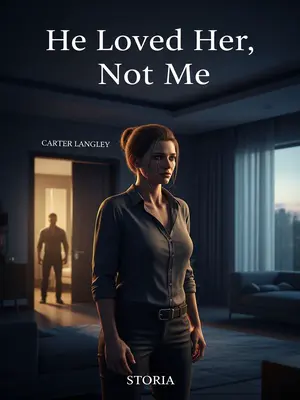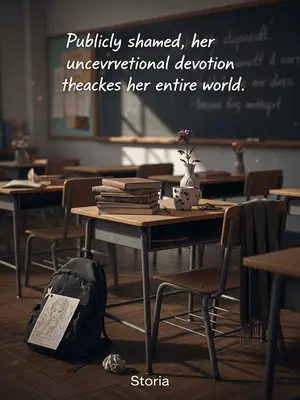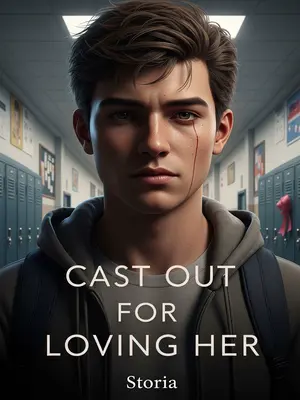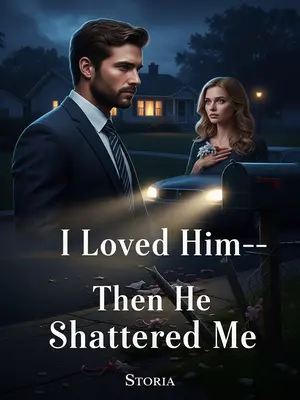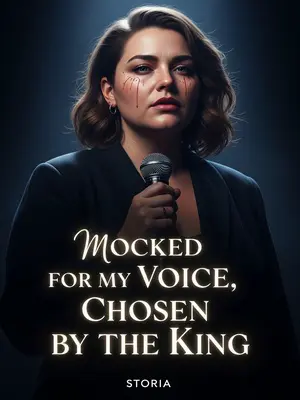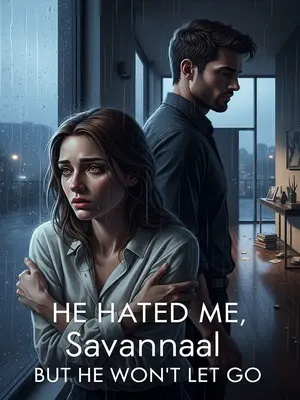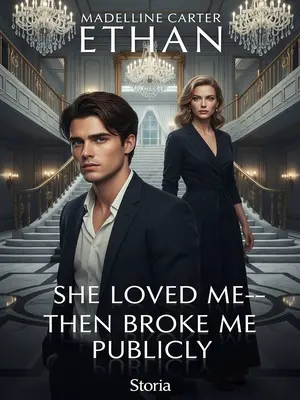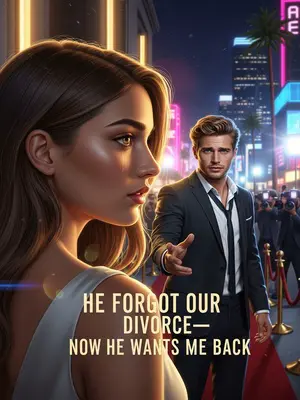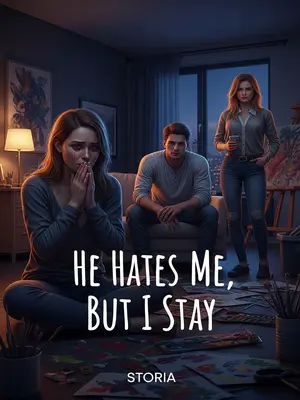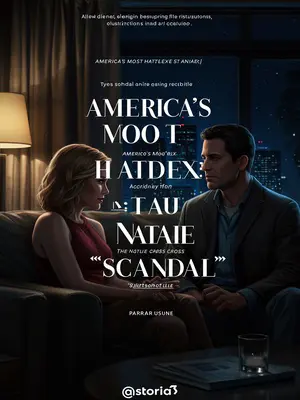Chapter 3: The Girl Behind the Curtain
I checked the time—still half an hour before I had to leave. I sank into the couch and opened the video link Molly had sent me. I wasn't sure I wanted to watch.
It was a vlog from four years ago, by a background actress documenting her daily life on set.
"Autumn, what shows have you been in before?" she asked, turning the camera on me.
I looked up, smiling softly. "This is my first time acting."
"You’re so good! If you like acting, why not try for drama school?"
I looped my arm through hers, grinning. "I’m not that into acting. I’m just here to get close to someone."
That was the end of my part in the video. It felt like a lifetime ago.
I turned off my phone and curled up on the couch. I missed those days. In that show, Caleb Monroe was the male lead—his first big role. I had to admit, he was sharp. He guessed right: I’d known him even before that show.
Five years ago, I sold the film rights to my first novel. Director James Whitaker invited me to visit the set. It was winter break, my parents were abroad, and I was bored at home, so I stayed on set for a week. Next door, another crew was filming a Prohibition-era drama. They were short on extras, so people worked both sets, running back and forth. Sometimes I helped the makeup artist when she was swamped, and soon I was friends with the crew.
One afternoon, makeup artist Carla and I were chatting under a maple tree after she finished with the extras.
"See that guy?" She pointed at a male actor on set. "That’s Caleb Monroe. Handsome, right?"
I followed her finger. "Is he the lead?"
"No, not much screen time." She sounded regretful. "I’ve worked with a lot of actors, but none look better than him. He’s got talent, too, but he’s too proud."
I looked at her, waiting for more.
She leaned in. "Last night the director wanted him to go drinking with some big shots. He refused. Most people would kill for that chance."
Just then, someone called Carla to touch up an actor’s makeup.
Before she left, she said, "Being too proud isn’t good in this business."
I got up and wandered closer to the set, holding my hand warmer. Caleb was tied to a rack, fake blood on his face and collarbone. As soon as the director yelled 'action,' a bucket of cold water was dumped on him. Water dripped from his hair, soaking his collar.
I shivered. It was bitterly cold, the wind like knives. His acting was great, instantly in character. Unfortunately, his scene partner botched their lines, so they had to reshoot. Another bucket of cold water. I could see him trembling. Because of props and camera angles, they had to redo the scene four times. My hands clenched tighter and tighter.
When he finally came out, his lips were pale, collarbones red from the cold. He didn’t have an assistant—he wasn’t high enough in the pecking order—so no one paid much attention to him. He looked miserable. I saw him leave the changing room, hair still wet. I went back to Director Whitaker’s crew, grabbed a dry towel, found Carla, and handed her the towel and my hand warmer.
"Carla, give these to Caleb for me."
"You like him? Want me to get his number for you?"
I just rolled my eyes and told her to hurry.
When she came back, she handed me a note. "He says thanks."
I opened it—his Instagram handle. My heart fluttered.
Back home, I typed it in. His name was just "Monroe." I sent a follow request, but when he didn’t respond for a long time, I forgot about it.
Unexpectedly, on New Year’s Eve, after filming wrapped, I saw his request approval. I jumped off the couch and ran to my room, heart pounding. I typed "Happy New Year" and hesitated. Then I hit send.
Ten minutes later, he replied: "You too. Happy New Year."
I thought for a moment and asked, "Did you finish filming that show?"
"Yeah."
...
After that, I messaged him often. At first, he barely replied, but over time, he opened up a little. He was cautious. Six months later, the movie based on my novel was a hit. I couldn't believe it. Director Whitaker jumped on the momentum and adapted another book of mine, "Midnight Magnolia." I begged him for weeks to let Caleb audition.
"Autumn, I can consider him for other roles, but not the male lead."
"Just give him a chance to audition, please, please!"
He sighed. "He can audition, but I won’t cast him."
"Even if you don’t, maybe next time!"
After a pause, he agreed. "Fine."
"Thank you, Director Whitaker!"
A few days later, he messaged me:
"He’s actually perfect for the role. The male lead is his."
I couldn't believe it. I ran out of the library, did two laps around the quad, then calmed down enough to message Caleb congratulations. But then I hesitated. If I messaged him, he might figure out I recommended him. That would make me self-conscious whenever I wrote. So I quickly told Director Whitaker not to mention me.
During fall break, I visited the set of "Midnight Magnolia" and saw Caleb filming. I asked Director Whitaker, "Can I have a small part?"
He thought for a moment. "Actually, there is a role for you."
So I played a blind girl. I was terrified. The original actress had to leave for health reasons, so I filled in. On set, unfamiliar with the layout, I accidentally bumped into a rig that almost fell on me. Suddenly, someone yanked me out of the way. I lost my balance and crashed into a solid chest. It was Caleb.
He spoke softly: "Be careful."
I nodded, dazed. That moment, he crashed right into my heart. I couldn't breathe.
I finished my scenes in two days. After that, all my attention was on him. I was hooked. He didn’t have an assistant, but as the male lead, the crew took care of him. The female lead, Savannah Langley, was a top star, surrounded by assistants and actors vying for selfies. I was different—I kept finding excuses to be near Caleb.
